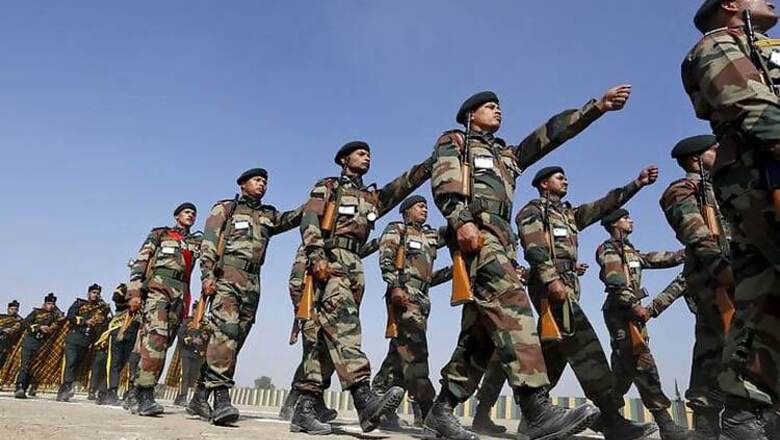
views
New Delhi: An estimated 3 million defence personnel and their family members could not exercise their democratic right to vote due to the cumbersome procedure involved in proxy and postal voting, mainly on account of postal delays, a parliamentary committee has said.
The Standing Committee on Defence, in its report submitted recently, has sought finalisation of standing operating procedure for online registration and one way e-movement of postal ballot for effective implementation of the system.
It stressed on the need to reduce the size of e-postal ballot files by the Election Commission to permit easy downloading even where internet speeds are low.
The report emphasised on the need to provide 'unique service numbers' to armed service voters after succesful registration.
"The Committee has desired that immediate steps should be taken to remove the above bottlenecks and they may be informed accordingly," it said.
The Election Commission and the Defence Ministry have also been asked to undertake a study of the electoral practices prevalent in countries where internet voting or chip-based identity card voting system exists.
The countries mentioned by the Committee include Australia, Brazil, Canada, Estonia, France, Netherlands, UK, USA, Switzerland and Venezuela among others.
"The best practices followed in this regard need to be identified and developed to suit the requirements of Indian election process," it said.
The Committee also expressed surprise at the fact that details of the number of armed forces personnel not having cast their vote in the elections and the reasons therefore have not been maintained, either by the Election Commission or the armed services.
It noted that Election Commission keeps a separate record of dispatch of postal ballots to service voters.
When it comes to counting, however, the postal ballots, which may include those of the staff on election duty, are taken up together.
"The Committee has desired that a mechanism be devised so as to enable in knowing the number of service votes received, counted, invalidated and the reasons for the invalidation of votes," it said.
The committee also welcomed the "historic step" of introducing e-postal balloting in the by-election held in Nellithope Assembly (Puducherry) on November 19.
However, it sought details on the number of service voters in the constituency, number of e-ballot papers transmitted to the unit, time taken to download the ballot papers, time taken in the return journey from the Unit office to the RO concerned, actual number of votes cast, actual number of valid/invalid votes and the reasons for the invalidation of votes among others.




















Comments
0 comment